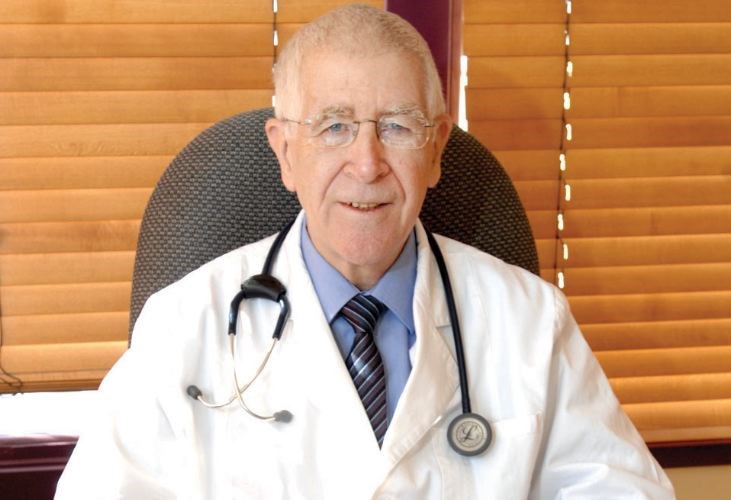The last decade has seen major changes in health care delivery in Prince George, but there's still one major missing piece, according to Dr. Bert Kelly.
"We've been aware that trauma in northern British Columbia isn't well dealt with and hasn't been for a long time," Kelly said Monday. "Many injured workers are simply flown over Prince George to Edmonton or Calgary or Vancouver. We have long felt there is a role for our university hospital to be much more equipped in the field of trauma management."
In 2002, the Northern Medical Society launched a six-point plan to ensure sufficient health care in the region. Much has been accomplished in the intervening 10 years, from the creation of the Northern Medical Program to the opening last year of the BC Cancer Agency Centre for the North. Kelly said the vision won't be complete until a new trauma centre is built and the facilities at the University Hospital of Northern B.C. are upgraded to make it a full teaching hospital.
"If a reasonable man were to be admitted to the university hospital if he was badly injured would he expect to be admitted to a state of the art trauma centre and have access to a functioning rehab unit before discharge? The answer clearly in my mind is yes," Kelly said.
Among other "deficiencies" Kelly sees with facilities in Prince George are old operating rooms and the lack of capability for some types of cardiac care.
To solve those problems he envisions a new surgical tower, which would include operating rooms, surgical beds and a trauma centre with a helicopter landing pad.
"When you got all of these catch up things that have to be done, it's always nice to come up with one project - an elegant solution, I call it - that would address everything here," he said. "The one thing that would do that is a surgical tower."
The helicopter landing pad could be used by the Helicopter Emergency Rescue Operations Society (HEROS), which is trying to bring volunteer-run, doctor-led air ambulance to northern B.C.
"These are people who can see a need for this," Kelly said. "Certainly the big trauma units in Europe all use helicopters."
In Kelowna, the Centennial building which opened last year and contains many of the facilities Kelly is looking for cost $218 million to build. Kelly didn't provide an estimate for how much a surgical tower would cost, but he doesn't think that the price tag will be the sticking point.
"Seventy cents on the provincial dollar is generated in the area covered by Northern Health," he said. "We are not beggars."
Both candidates in Prince George Valemount said Kelly's proposal is worth further study.
Current MLA Shirley Bond wouldn't promise the tower will be built immediately if the Liberals secure re-election, but said her party has a track record of listening to ideas local physicians have and acting on them.
"I can't say today that a trauma tower would happen in a year or two years or even five years, but I think we have a track record of working constructively, identifying the vision and trying to move towards the successful completion of those kinds of quality improvements for the north," she said.
Bond said the need for the facility must be balanced against the requirements in other parts of the province.
"The question is, is it necessary? If it is, then how do we work our way to actually successfully delivering it?" she said.
NDP candidate Sherry Ogasawara said the tower likely wouldn't be built in the short term, but is something her party would consider.
"I think it's something that needs to be thought through and really thoroughly strategized but it's a proposal and an idea - especially coming from Dr. Kelly, who I have great respect for - that really has merit," she said.
Ogasawara said discussions would need to take place between the government and Northern Health to make sure the priorities are aligned.
"As an MLA I would say without hesitation that I will fight for ensuring that we in the north are equipped to be able provide the best quality care for the people that live in the region," she said.
If a new surgical tower were to built, space would have to be located on an already crowded UHNBC site.
"That's an engineering problem and I have total faith in engineers," Kelly said.


